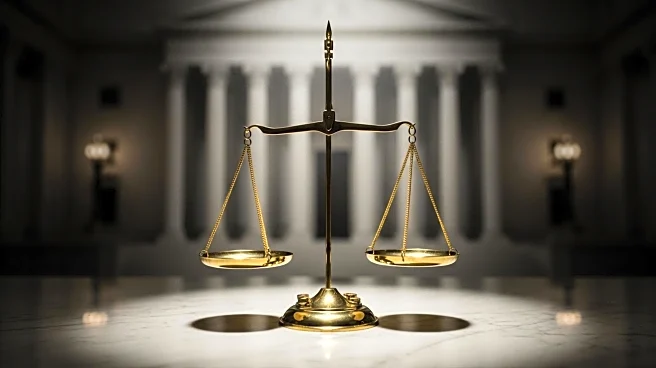What is the story about?
What's Happening?
The Trump administration has requested the Supreme Court to rule on the constitutionality of an executive order aimed at ending automatic birthright citizenship. This request involves two appeals from cases in Washington state and New Hampshire, which will determine the legality of the proposal. Traditionally, the 14th Amendment has guaranteed citizenship to anyone born on U.S. soil, except for children of diplomats. The administration argues that this guarantee should not apply to temporary visitors or individuals who entered the country illegally. The Solicitor General described the long-standing interpretation of the 14th Amendment as a 'mistaken view' with 'destructive consequences.' The appeals differ from previous cases that addressed whether federal judges could block the policy nationwide. These are regular appeals that could take months to resolve, potentially involving oral arguments in the Supreme Court's new term.
Why It's Important?
The Trump administration's challenge to birthright citizenship could have significant implications for immigration policy and the interpretation of the 14th Amendment. If the Supreme Court rules in favor of the administration, it could alter the longstanding understanding of citizenship rights in the U.S., affecting millions of individuals born in the country. This legal battle underscores the administration's broader efforts to reshape immigration policy and restrict pathways to citizenship. Critics, including the ACLU, argue that the executive order is illegal and that the administration's maneuvering will not change its legality. The outcome of this case could redefine citizenship rights and impact the lives of many immigrants and their families.
What's Next?
The Supreme Court's decision on these appeals will likely take months, as they are not emergency requests. The court may agree to hear the cases and conduct oral arguments, potentially resolving the issue in its new term starting in October. The legal proceedings will continue, and the administration's proposal remains contentious. The Justice Department has not commented on the appeals, and the cases have not yet been officially docketed at the court. The outcome will be closely watched, as it could set a precedent for future immigration policies and constitutional interpretations.















